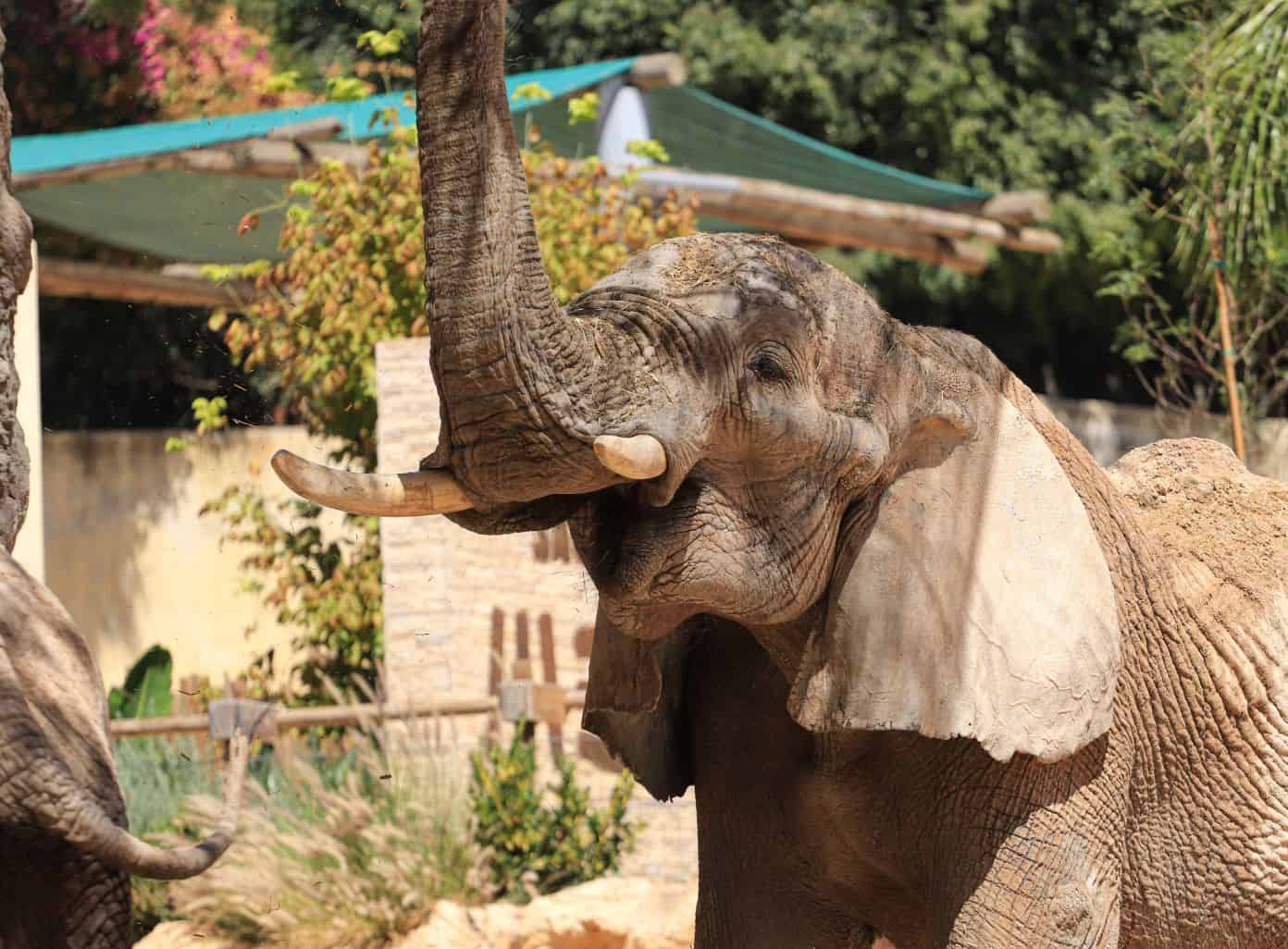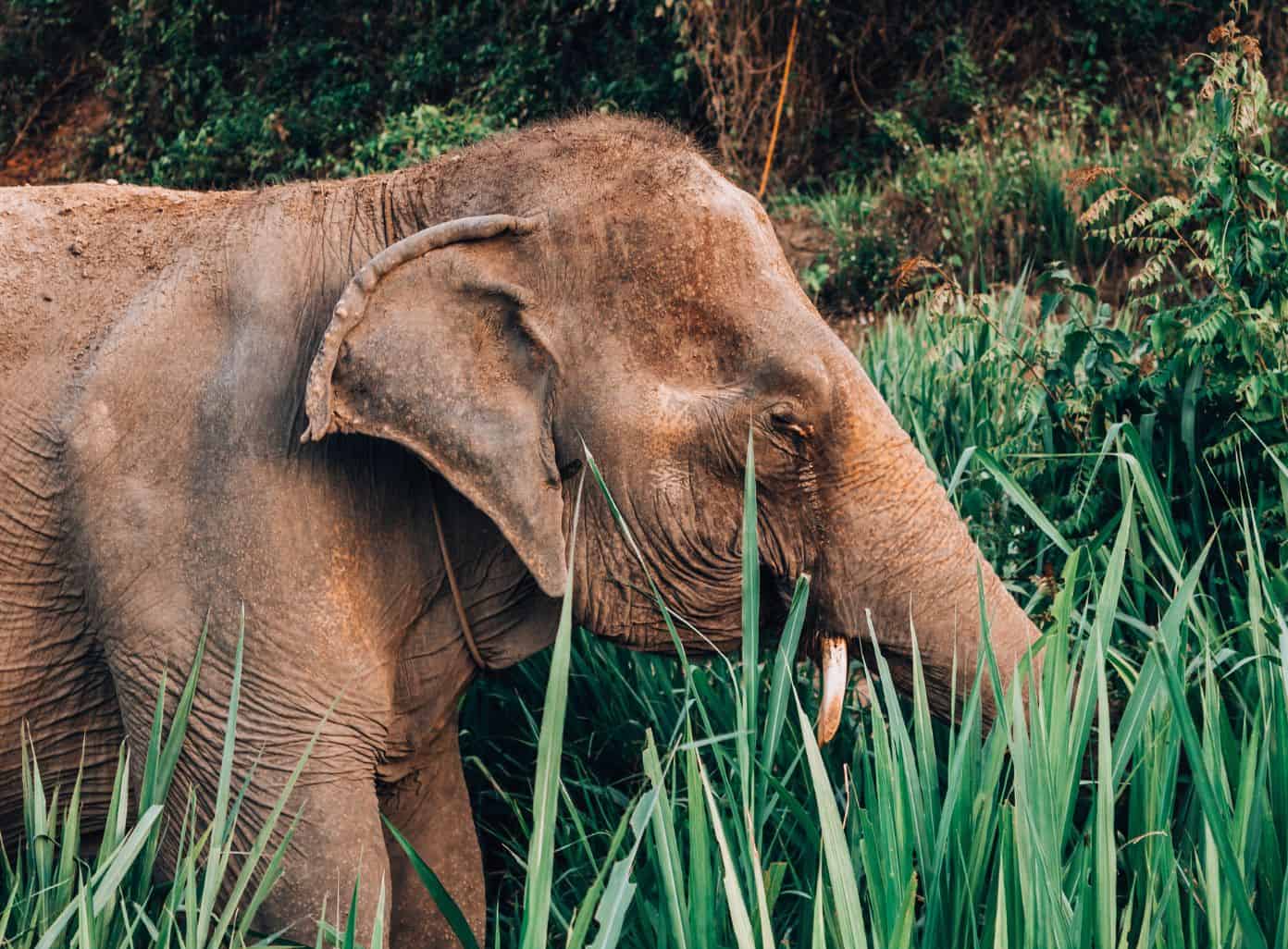Thailand’s Elephant Park is a must-see attraction for anyone visiting this beautiful country. From understanding the significance of elephant parks in Thailand to planning your visit and experiencing the unique activities offered, this article will guide you through exploring this remarkable destination. Additionally, we will highlight the importance of responsible tourism and how you can support elephant conservation efforts while respecting local culture and practices.
Understanding the Significance of Elephant Parks in Thailand

Thailand, a country known for its rich biodiversity and vibrant culture, is home to a remarkable creature that holds a special place in the hearts of its people – the elephant. These gentle giants have long been a symbol of power, strength, and good fortune in Thai society. However, the survival of these majestic creatures has been threatened in recent years due to various factors, such as habitat loss and the illegal ivory trade.
In response to these challenges, dedicated elephant parks have emerged as vital sanctuaries for the well-being and conservation of these magnificent animals. These parks serve as a safe haven where elephants can roam freely, away from the dangers of poaching and deforestation. They provide a protective environment that allows these creatures to thrive and ensures their survival for future generations.
But the significance of elephant parks in Thailand goes beyond conservation efforts. These parks also play a crucial role in promoting education and raising awareness about the importance of elephant conservation. Visitors to these parks have the opportunity to learn about the challenges faced by elephants and the steps being taken to protect them. Through interactive experiences and educational programs, visitors gain a deeper understanding of the complex issues surrounding elephant conservation and are inspired to become advocates for these incredible creatures.
The Role of Elephant Parks in Conservation
Elephant parks in Thailand are at the forefront of conservation efforts, working tirelessly to protect and preserve these magnificent creatures. With their vast knowledge and expertise, park staff and conservationists are dedicated to ensuring the well-being and survival of elephants. They closely monitor the health and behavior of the elephants, providing them with the necessary care and attention they need to thrive.
Additionally, these parks actively participate in breeding programs to increase the elephant population and maintain genetic diversity. By carefully selecting suitable mates for breeding, they contribute to the long-term sustainability of the elephant population. Through these efforts, elephant parks are not only safeguarding the future of elephants but also playing a crucial role in maintaining the ecological balance of their natural habitats.
Furthermore, elephant parks collaborate with local communities and government agencies to address the root causes of elephant threats. They work together to develop sustainable solutions that mitigate human-elephant conflicts, such as implementing elephant-friendly agricultural practices and creating wildlife corridors to ensure safe passage for elephants.
The Cultural Importance of Elephants in Thailand

Elephants hold a deep and enduring cultural significance in Thailand. For centuries, these majestic creatures have been revered and celebrated as an integral part of the nation’s heritage. In Thai folklore and mythology, elephants are often depicted as sacred beings with supernatural powers, embodying strength, wisdom, and grace.
Throughout history, elephants have played a prominent role in traditional Thai festivals and ceremonies. From the grand processions during religious events to the lively performances in cultural celebrations, elephants have captivated the hearts of both locals and visitors alike. Their presence adds a touch of majesty and splendor to these events, reminding everyone of the rich cultural heritage that Thailand holds.
Elephant parks provide a unique opportunity for people to connect with and appreciate these revered animals on a deeper level. Visitors can witness the intelligence and gentle nature of elephants through various activities, such as feeding, bathing, and even participating in educational programs. These experiences foster a sense of respect and admiration for elephants, further strengthening the cultural bond between humans and these magnificent creatures.
In conclusion, elephant parks in Thailand are not only vital for the conservation and protection of these majestic creatures but also serve as a bridge between nature and culture. They offer a sanctuary where elephants can thrive, while also providing educational opportunities for visitors to learn about the importance of elephant conservation. By understanding the significance of these parks, we can all contribute to the preservation of these incredible animals and ensure a brighter future for them in Thailand and beyond.
Planning Your Visit to Thailand’s Elephant Park
Best Time to Visit the Elephant Park
The best time to visit Thailand’s Elephant Park is during the country’s dry season, which typically runs from November to March. During these months, the weather is pleasant and less prone to rainfall, making it an optimal time to enjoy outdoor activities and explore the park. However, it’s always advisable to check weather reports closer to your travel dates for the most accurate information.
Essential Items to Pack for Your Visit
Before heading to Thailand’s Elephant Park, it’s important to pack a few essential items to ensure a comfortable and enjoyable experience. These include lightweight and breathable clothing, comfortable walking shoes, sunscreen, insect repellent, a reusable water bottle, and a camera to capture those memorable moments spent with the elephants.
Key Areas to Explore in the Park
Thailand’s Elephant Park is typically divided into sections, each offering a unique experience. As you navigate through the park, be sure to visit areas where you can observe elephants in their natural habitat, learn about their behaviors and diets, and even witness traditional elephant shows and performances. Additionally, make time to explore the park’s informative exhibits and interact with knowledgeable staff who can provide valuable insights into elephant conservation.
Interacting with Elephants: Do’s and Don’ts
When interacting with elephants at the park, it’s essential to follow the guidelines set in place to ensure both your safety and the well-being of the elephants. Do approach the elephants calmly and quietly, always maintaining a respectful distance. Do listen to and follow instructions provided by trained staff members. Don’t ride or engage in any activities that may harm or cause distress to the elephants. Remember, the primary focus should be on observing and appreciating these magnificent creatures in their natural environment.
The Unique Experiences at Thailand’s Elephant Park
Participating in Elephant Feeding and Bathing
One of the highlights of visiting Thailand’s Elephant Park is the opportunity to participate in elephant feeding and bathing. Interacting with the elephants during feeding sessions allows you to get up close and personal with these gentle giants while learning about their dietary needs. Moreover, bathing elephants in the park’s designated bathing areas offers a chance to witness their joyful interactions with water and to lend a hand in their care and well-being.
Overnight Stays at the Park: What to Expect
To fully immerse yourself in the magical world of elephants, consider opting for an overnight stay at Thailand’s Elephant Park. These accommodations often provide unique opportunities to learn more about the elephants and their daily routines. You can engage in additional activities such as night safaris, guided jungle walks, and experiencing nighttime elephant gatherings. Overnight stays allow you to witness the tranquility of the park after dark, as well as the opportunity to observe nocturnal wildlife.
Responsible Tourism at Thailand’s Elephant Park
Supporting Elephant Conservation Efforts
When visiting Thailand’s Elephant Park, it’s crucial to choose establishments that prioritize the well-being and ethical treatment of elephants. Opt for parks that focus on conservation, education, and sustainable practices, as they actively contribute to the long-term survival and welfare of these magnificent creatures. By supporting such parks, you are helping to ensure a brighter future for elephants in Thailand and beyond.
Respecting Local Culture and Practices
Responsible tourism also requires respecting the local culture and practices surrounding elephants. It’s important to approach these majestic creatures with humility, acknowledging their significance in Thai culture. In addition, respecting park rules, following instructions from park staff, and interacting with the elephants in a non-intrusive and considerate manner demonstrate your commitment to cultural sensitivity and responsible travel.
In conclusion, Thailand’s Elephant Park is truly a must-see attraction for anyone visiting Thailand. By understanding the significance of elephant parks, planning your visit, navigating through the park, and engaging in unique experiences, you can create memories that will last a lifetime. Moreover, by practicing responsible tourism and supporting elephant conservation efforts while respecting local culture, you contribute to the preservation of these incredible animals and their cultural heritage. So, pack your bags and embark on an unforgettable journey into the world of Thailand’s elephants!

